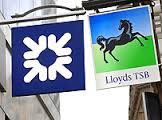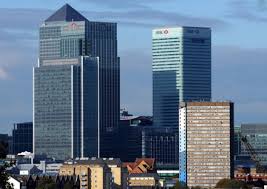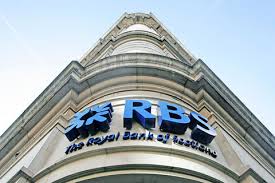Tom Hayes the Banks Fall Guy – Could he have done this all on his own?
Are we looking at the fall guy? I suspect we are as there were lots of people involved in the endemic corruption in the banking system around the world. Yesterday former City trader Tom Hayes was found guilty at a London court of rigging global Libor interest rates, did he do this on his own? I don’t think so and why were not more people in court such as the CEO’s of all the banking organisations involved?
Surely the culture that allowed this to happen would have been allowed from the top. There must be some culpability there? Or is there a degree of abandonment and looking for scape goats going on?
 Mr Hayes was sentenced to 14 years in prison for conspiracy to defraud. The 35-year old is the first individual to face a jury trial for manipulating the rate, which is used as a benchmark for trillions of pounds of global borrowing and lending.
Mr Hayes was sentenced to 14 years in prison for conspiracy to defraud. The 35-year old is the first individual to face a jury trial for manipulating the rate, which is used as a benchmark for trillions of pounds of global borrowing and lending.
Many of the world’s leading banks have paid heavy financial penalties for tampering with the key benchmark. The jury found Hayes guilty on all eight charges of conspiracy to defraud. Hayes stood impassively as the foreman on the jury read out all eight guilty verdicts. His wife noted down the verdicts as they were read out. At one point, he shook his head and looked across at his wife, mother and stepfather in the public gallery, he was probably thinking about all of his former colleagues who would have been involved both here and overseas.
Hayes held his head in his hands while his lawyer read out a list of mitigating factors. Hayes was sentenced to 14 years, half to be spent in custody before any possibility of release on licence.
Justice Cooke said Hayes was the “centre and hub” of the manipulation, I would suggest that is a simplification and perhaps more about the establishment closing ranks to possibly ensure that the actual truth of the matter did not get out.
You cannot rig something as complex as the Libor rate on you own. He said: “You succumbed to temptation because you could … To gain remuneration, seniority and status,” adding that Hayes’ actions were “wrong and dishonest”. None of which I would disagree with however, the scandal is much wider than one person, it is ridiculous to suggest that one man can bring down the entire banking system.
If that is the case the entire banking system itself is utterly unsound.
The case was brought by the Serious Fraud Office, which said Hayes set up a network of traders and brokers spanning 10 financial institutions and cajoled or bribed them to help rig Libor rates for profit.
Meaning there are many others involved!
During the trial, jurors were told that Hayes promised to pay a broker up to $100,000 to keep the Libor rate “as low as possible”. Meaning it spanned continents– one man did this and is entirely to blame?
 14 years for stealing Trillions of $’s? Rob a bank of a few thousand and you get life?
14 years for stealing Trillions of $’s? Rob a bank of a few thousand and you get life?
It took the jury one week to arrive at the verdicts. Defence barrister Neil Hawes asked the judge to take into account the prevalence of Libor manipulation at the time, and also that Hayes had been diagnosed with Asperger’s syndrome, a condition on the autism spectrum. Mr Hawes also said that managers and senior managers at Hayes’ bank knew of, and in some cases condoned, Libor manipulation.
Hayes, a former star trader originally from Fleet in Hampshire, rigged the Libor rates daily for nearly four years while working in Tokyo for UBS, then Citigroup, from 2006 until 2010. Citigroup says it has no comment about the verdicts.
UBS has said it was not a party to the case. Hayes’s trading activities were based around movements in theLibor rate – the London interbank offered rate. It is an interest rate used by banks around the world to set the price of financial products worth trillions of pounds.
Rigging even minor movements in the rate can result in bumper profits for a trader manipulating the rates, or the rate can be moved simply to make a bank look more creditworthy.
During the trial, the court heard that manipulating the Libor rate was so commonplace that an offer of a Mars Bar could get it changed. Hayes told a fellow trader: “Just give the cash desk a Mars bar and they’ll set wherever you want.”. Hayes confessed, saying that he did not want to be extradited to the US.
He claimed that the manipulation was widespread. Hayes initially co-operated with investigators, confessing to the manipulation. Four months after he was charged in 2013, he changed his legal team, and his plea.
He pleaded “not guilty” to the charges, resulting in the trial, which began on 26 May. Many involved, so endemic, the root cause is the culture yet only one man is charged? What is wrong with this picture?
Did he do this on his own? Certainly not he was not a loan rogue trader and why were not more people in court such as the CEO’s of all the banking organisations involved? 14 years for stealing Trillions of $’s? Rob a bank of a few thousand and you get life? Surely it should be several life sentences?
Researched, Sourced and Commented by Ewart Dudko-Richardson
@EwartRichardson and @GuvnorMedia_
www.guvnormedia.com – the Ultra Media Service video commercials for less than £99
Is Tom Hayes the banks Fall Guy?
Are we looking at the fall guy? I suspect we are as there were lots of people involved in the endemic corruption in the banking system around the world. Yesterday former City trader Tom Hayes was found guilty at a London court of rigging global Libor interest rates, did he do this on his own? I don’t think so and why were not more people in court such as the CEO’s of all the banking organisations involved?
Surely the culture that allowed this to happen would have been allowed from the top. There must be some culpability there? Or is there a degree of abandonment and looking for scape goats going on?
 Mr Hayes was sentenced to 14 years in prison for conspiracy to defraud. The 35-year old is the first individual to face a jury trial for manipulating the rate, which is used as a benchmark for trillions of pounds of global borrowing and lending.
Mr Hayes was sentenced to 14 years in prison for conspiracy to defraud. The 35-year old is the first individual to face a jury trial for manipulating the rate, which is used as a benchmark for trillions of pounds of global borrowing and lending.
Many of the world’s leading banks have paid heavy financial penalties for tampering with the key benchmark. The jury found Hayes guilty on all eight charges of conspiracy to defraud. Hayes stood impassively as the foreman on the jury read out all eight guilty verdicts. His wife noted down the verdicts as they were read out. At one point, he shook his head and looked across at his wife, mother and stepfather in the public gallery, he was probably thinking about all of his former colleagues who would have been involved both here and overseas.
Hayes held his head in his hands while his lawyer read out a list of mitigating factors. Hayes was sentenced to 14 years, half to be spent in custody before any possibility of release on licence.
Justice Cooke said Hayes was the “centre and hub” of the manipulation, I would suggest that is a simplification and perhaps more about the establishment closing ranks to possibly ensure that the actual truth of the matter did not get out.
You cannot rig something as complex as the Libor rate on you own. He said: “You succumbed to temptation because you could … To gain remuneration, seniority and status,” adding that Hayes’ actions were “wrong and dishonest”. None of which I would disagree with however, the scandal is much wider than one person, it is ridiculous to suggest that one man can bring down the entire banking system.
If that is the case the entire banking system itself is utterly unsound.
The case was brought by the Serious Fraud Office, which said Hayes set up a network of traders and brokers spanning 10 financial institutions and cajoled or bribed them to help rig Libor rates for profit.
Meaning there are many others involved!
During the trial, jurors were told that Hayes promised to pay a broker up to $100,000 to keep the Libor rate “as low as possible”. Meaning it spanned continents– one man did this and is entirely to blame?
 14 years for stealing Trillions of $’s? Rob a bank of a few thousand and you get life?
14 years for stealing Trillions of $’s? Rob a bank of a few thousand and you get life?
It took the jury one week to arrive at the verdicts. Defence barrister Neil Hawes asked the judge to take into account the prevalence of Libor manipulation at the time, and also that Hayes had been diagnosed with Asperger’s syndrome, a condition on the autism spectrum. Mr Hawes also said that managers and senior managers at Hayes’ bank knew of, and in some cases condoned, Libor manipulation.
Hayes, a former star trader originally from Fleet in Hampshire, rigged the Libor rates daily for nearly four years while working in Tokyo for UBS, then Citigroup, from 2006 until 2010. Citigroup says it has no comment about the verdicts.
UBS has said it was not a party to the case. Hayes’s trading activities were based around movements in theLibor rate – the London interbank offered rate. It is an interest rate used by banks around the world to set the price of financial products worth trillions of pounds.
Rigging even minor movements in the rate can result in bumper profits for a trader manipulating the rates, or the rate can be moved simply to make a bank look more creditworthy.
During the trial, the court heard that manipulating the Libor rate was so commonplace that an offer of a Mars Bar could get it changed. Hayes told a fellow trader: “Just give the cash desk a Mars bar and they’ll set wherever you want.”. Hayes confessed, saying that he did not want to be extradited to the US.
He claimed that the manipulation was widespread. Hayes initially co-operated with investigators, confessing to the manipulation. Four months after he was charged in 2013, he changed his legal team, and his plea.
He pleaded “not guilty” to the charges, resulting in the trial, which began on 26 May. Many involved, so endemic, the root cause is the culture yet only one man is charged? What is wrong with this picture?
Did he do this on his own? Certainly not he was not a loan rogue trader and why were not more people in court such as the CEO’s of all the banking organisations involved? 14 years for stealing Trillions of $’s? Rob a bank of a few thousand and you get life? Surely it should be several life sentences?
Researched, Sourced and Commented by Ewart Dudko-Richardson
@EwartRichardson and @GuvnorMedia_
www.guvnormedia.com – the Ultra Media Service video commercials for less than £99
Lloyds and RBS very different propositions – why so long for an RBS turnaround?
It will be interesting watching what the new Tory Government do with its Banking shares. It will no doubt look to maximise the returns on these investments, however, lets hope it is not a fire sale for their friends in the city.
It would make sense to sell the shares but the criticality is picking the correct time to get back the tax payers investment.
In terms of Lloyds the government has sold another tranche of shares in taxpayer-backed Lloyds Banking Group, reducing its stake in the bank to below 20%.
The latest share sale sees £500m returned to the taxpayer and means around £10bn has now been recouped.
Lloyds received £20bn at the height of the financial crisis, with taxpayers taking a 40% stake in the group.
 So in some respects the City has got a bit of a bargain with the tax payer loosing around £10 Bn, which is quite a poor deal, you would think with a treasury full of financial advisers and business people that they could have at least got their money back? Sorry our money back!
So in some respects the City has got a bit of a bargain with the tax payer loosing around £10 Bn, which is quite a poor deal, you would think with a treasury full of financial advisers and business people that they could have at least got their money back? Sorry our money back!
UK Financial Investments has been steadily reducing the government’s stake in Lloyds since December.
The latest sale cut the government’s stake in the bank to 19.93%. It has reduced its shareholding in the bank by 5% since the start of the year.
A Lloyds Banking Group spokesperson said the latest announcement showed “the further progress” made in returning the bank to “full private ownership and enabling the taxpayer to get their money back”.
The fortunes of Lloyds are in stark contrast to those of Royal Bank of Scotland (RBS), which was also rescued by the taxpayer during the financial crisis, but appears to be nowhere near ready to return to private ownership.
RBS, which is still 80% taxpayer-owned, lost £446 million for the first 3 months of this year after setting aside £856m for “litigation and conduct charges”, as well as £453m for restructuring costs following the sale of its US bank, Citizens.
Again you wonder why it is taking so long perhaps there is not enough pressure coming from their “friends” at the treasury?
That compared with a profit of £1.2bn profit last year, when there were fewer one-off costs.
By comparison, Lloyds said in February it would resume paying dividends to shareholders for the first time since the financial crisis in 2008 as it reported full year statutory profits of £1.8bn.
Lloyds said it would pay a dividend of 0.75 pence per share, amounting to £535m to be split among the bank’s three million shareholders, with the largest share, £130m, going to the government.
You would like to think by the end of this year that RBS would be in the same state?
Sourced, Commented and Written Ewart Dudko-Richardson
https://uk.linkedin.com/pub/ewart-richardson/11/288/429
@EwartRichardson or @GuvnorMedia_
House prices slow again according to the Nationwide – What is happening in the housing market?
The annual pace of house price growth has slowed again, according to the UK’s second biggest mortgage lender.
This is another indicator that the UK economy and confidence in the market is slowing down could there be a second recession on its way or is it that house price growth was just un-sustainable.
Hopefully it is the second situation and that there will be a correction in the market, however, we believe that the economy will continue to slow as it is buffeted by the economic winds from Europe and the far east, all of which seems to show signs of slowing.
 The Nationwide said house price inflation fell to 6.8% in December, down from 7.2% in December.
The Nationwide said house price inflation fell to 6.8% in December, down from 7.2% in December.
It said the reasons for the slowdown in housing market activity “remain unclear”, as the economic background has continued to improve, something we believe to be not the case. Yes we have seen OK figures from the UK but that cannot be sustained with so much of our export market being in the Eurozone, which is economically stagnant.
Monthly house prices rose by 0.3% in January, taking the average house price up to £188,446.
This means that average house prices have been at a plateau since June last year.
“Annual house price growth continued to soften at the start of 2015,” said Nationwide’s chief economist, Robert Gardner.
He said the number of mortgages approved for house purchase had been about 20% below the level prevailing at the start of 2014 and surveyors continued to report subdued levels of new buyer enquiries.
The Nationwide’s survey tend to agree with the latest data from HM Revenue & Customs (HMRC), whose monthly figures for the whole of the UK show that sales eased off in the last few months of last year.
 Another explanation for the cooling of the property market is that its recent peak in late 2013 and early 2014 was temporarily stimulated by government initiatives such as the Funding for Lending Scheme (FLS) and Help to Buy.
Another explanation for the cooling of the property market is that its recent peak in late 2013 and early 2014 was temporarily stimulated by government initiatives such as the Funding for Lending Scheme (FLS) and Help to Buy.
Mr Gardner was optimistic that sales would soon pick up again, but in a way he would have to say that.
He said “If the economic backdrop continues to improve as we and most forecasters expect, activity in the housing market is likely to regain momentum in the months ahead,”
“It is encouraging that the number of new homes built in England was up 8% in the year to the third quarter of 2014.”
However, the recent slump in the construction industry may put pay to that figure long term.
Commented, sourced and edited by Ewart Dudko-Richardson
uk.linkedin.com/pub/ewart-richardson/11/288/429/
@GuvnorMedia_ or @EwartRichardson
Or Watch at www.biztobiztv.com
Also Join our Group Biz To Biz TV on LinkedIn
Got a news story for us? Contact us below at :-
Tel: +44 (0)845 0943274
Email : info@biztobiztv.com
For advertising and sponsorship enquiries contact us below at :-
Tel : +44 (0)845 0943274
Email : info@guvnormedia.co.uk
Is “Greed is Good” back in Banking?
Who would have thought that city bankers would complain about their bonuses, senior workers in London’s financial services sector are expecting an average 21% rise in their bonus pay outs for this year, a survey found.
The increase would take the average bonus to £124,680, according to recruitment firm Astbury Marsden, which surveyed 1,500 senior City staff.
Which compared to the rest of the UK is ridiculous and no this is not jealously or a complaint about people who are wealthy in one respect it’s the reverse. The banks and bankers put our economy, the entire world economy into the mess it’s in now. The sad thing to me is that despite large salaries, they really don’t care about putting right the mess they have made.
 We have seen a plethora of films such as “Wall Street”, “the Wolf of Wall Street” with all the risk taking, greed on a scale that most would not believe and corruption at the highest level.
We have seen a plethora of films such as “Wall Street”, “the Wolf of Wall Street” with all the risk taking, greed on a scale that most would not believe and corruption at the highest level.
So you would have thought that if this sector, which is now being fined and looked into for various fixing scandals and other criminal activities, the staff and the industry itself would want to clean its image up and show some responsibility.
It is not as if bankers would become poor overnight but no, they are complaining about the poor levels of bonus.
I suspect in any other industry there would be a major effort to clean it up very quickly and remove those who have been at the centre of the problems, but it doesn’t seem to happen.
I still believe the relationship between Governments and banks is too cosy with most of today’s politicians being from a finance or banking background.
Meaning that it is unlikely that they will pursue this sector with any vigour.
This sector is out of control and shows no sign of contrition or even wanting to put its house in order.
The feeling of the industry is expressed by Adam Jackson, a director at Astbury Marsden, who recruits financial staff, says rising confidence was translated into rising bonus expectations.
“Business conditions in the City have improved significantly over the last year,” Mr Jackson said.
“Despite shareholder and public pressure to limit bonuses and with the EU bonus cap now set to be introduced at the start of 2015, City staff clearly feel that their employers are in the position to reward them well.”
 The European Union is introducing a new law that limits a bonus to no more than 100% of a banker’s fixed salary, or twice that level with shareholder approval.
The European Union is introducing a new law that limits a bonus to no more than 100% of a banker’s fixed salary, or twice that level with shareholder approval.
Astbury Marsden’s survey found that staff working in private equity investing are expecting the highest bonuses in 2014, well ahead of other sections of the City.
Staff working in private equity expect an average bonus of £145,625, which would be 115% of their average salary.
The survey also found that more than half of the employees who responded said, they would change roles if they were not happy with the bonus they received.
Some 54% of respondents said they would change their jobs and move to a different employer as a result of a poor bonus, compared to 45% who said the same thing in 2013.
This was the highest proportion since the survey began, reflecting growing confidence in the City jobs market.
There we have it back to excess and the “greed is good” culture.
I suspect as I have said before the scandals and criminal activity will only stop once people actually go to prison. It will take that sort of jolt to begin to re-dress this sector and normalise it as part of real society.
Commented, sourced and edited by Ewart Dudko-Richardson
uk.linkedin.com/pub/ewart-richardson/11/288/429/
@BizToBizTV or @EwartRichardson
Or Watch at www.biztobiztv.com
Also Join our Group Biz To Biz TV on LinkedIn
Got a news story for us? Contact us below at :-
Tel: +44 (0)845 0943274
Email : info@biztobiztv.com
For advertising and sponsorship enquiries contact us below at :-
Tel : +44 (0)845 0943274
Email : info@guvnormedia.co.uk
24 Major European Banks fail stress test
Banks in trouble again, this seems to be the normal situation at the moment.
It just continues to show that banks are not quite up to the job, and I suspect if it were any other industry, there would be even more questions asked.
However, the banks themselves are so powerful and deeply intertwined with governments that it would appear that most governments do not know what to do to get a grip on this critical business sector.
Today trading in shares of Italy’s Monte dei Paschi bank has been suspended twice.
Monte dei Paschi’s shares dived 17% early on Monday after it emerged as the worst performer in official stress tests. Trading resumed later but was again halted after losses reached 20%.
 In all, 24 of 123 banks failed the European Banking Authority (EBA) tests, designed to find out if they could withstand another financial crisis.
In all, 24 of 123 banks failed the European Banking Authority (EBA) tests, designed to find out if they could withstand another financial crisis.
Share prices in most EU banks are down following publication of the results.
Lloyds Banking Group shares fell 2.4% after it narrowly passed the tests, which in itself is not so good.
All UK bank shares – Barclays, RBS, HSBC, Standard Chartered and new joiner TSB – are lower.
Monte dei Paschi bank was founded in 1472 for granting loans to “poor or miserable or needy persons.”
A handful of the strongest remained higher.
Austria’s Erste Bank, Raiffeisen and Germany’s Commerzbank were all up to 5% at the start of trading, although Commerzbank fell back to stand 1% higher.
The health check by the EBA was based on the banks’ financial health at the end of 2013.
No UK banks failed the EBA tests. Of the 24 banks that did fail, 10 of them have taken measures to bolster their balance sheets in the meantime.
There are 14 banks that still need to raise more capital. Four are Italian, two Greek, two Belgian and two more Slovenian.
Furthermore, on Sunday, the European Central Bank (ECB) carried out an overlapping survey of 130 euro zone banks.
The ECB said 25 banks had failed its test, but 12 of those had already taken remedial action.
The ECB’s total is higher than the EBAs because of Spain’s Liberbank, which passed the stress test but failed the ECB’s Asset Quality Review.
At least, the majority of the banks passed the stress test, but at Biz To Biz TV News, we don’t think this is the last we will hear about this.
Edited, Sourced and Commented by Ewart Dudko-Richardson
uk.linkedin.com/pub/ewart-richardson/11/288/429/
Comments to info@biztobiztv.com or tweet @BizToBizTV or @EwartRichardson
Or Watch at www.biztobiztv.com
Got a news story for us? Contact us below at :-
Tel: +44 (0)845 0943274
Email : info@biztobiztv.com
For advertising and sponsorship enquiries contact us below at :-
Tel : +44 (0)845 0943274
Email : info@guvnormedia.


Recent Comments